The Who’s Best Songs: 20 Rock’n’Roll Essentials
No matter what decade you find the Who, they remain relevant, creating anthems that speak truths that feel both personal and universal.
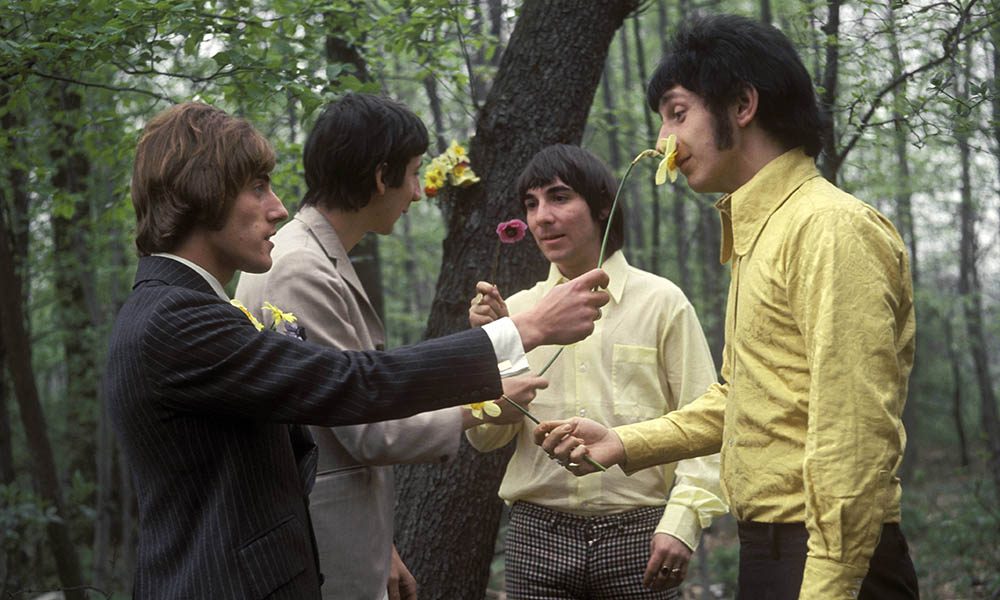
The Who has an almost peerless discography. Theirs was a fast evolution, moving from the swinging mod anthem “Zoot Suit” (released under their original name The High Numbers) to the heady psychedelia of “I Can See For Miles” in just three years; from the muscular defiance of “Won’t Get Fooled Again” to the synthpop-informed “Eminence Front” in about a decade. All of their music is reflective of the spirit of the era in which it was recorded, but more often than not it transcends those trends and achieves that rarest of goals: timelessness.
The band itself is instantly recognizable. Pete Townshend’s windmill guitar playing – a signature move he says he stole from The Rolling Stones’ Keith Richards. Roger Daltrey swinging his microphone around by the cord. John Entwistle’s stoic presence and fleet-fingered bass work. Keith Moon’s whirling movements behind the drum kit. The almost ritual destruction of the equipment at the end of every show.
Even as the band has moved from their scrappy days torturing the eardrums of fans at London’s Marquee Club to multimedia spectacles held at arenas around the world – and even as the core lineup has been reduced to two after the deaths of Moon in 1978 and Entwistle in 2002 – The Who’s reign continues. Nearly a half-century after their first rehearsal, The Who is still making three-minute rock songs that feel like symphonies and mapping out concept albums that tell epic, and often deeply intimate, stories.
Listen to a playlist of the best The Who songs on Apple Music and Spotify.
The 60s
(I Can’t Explain, My Generation, I Can See For Miles, Pinball Wizard, A Quick One While He’s Away, Disguises, We’re Not Gonna Take It)
The Who’s rapid ascent to the top of the charts in their native England began in earnest in 1964. It was that year that the core members of a group known as The Detours – Daltrey, Townshend, and Entwistle – hired Moon to replace original drummer Doug Sandom. Now renamed The Who, with this classic line-up in place and a combustible live show garnering them attention in the British press, the band scored their first Top 10 single in 1965 with “I Can’t Explain,” a charged-up mod pop song sent aloft by Townshend’s chiming guitar chords. That same year, The Who landed both the best chart position the quartet would ever reach with the 60s youth movement anthem “My Generation.” That stop-start masterpiece would become a mainstay of the group’s live sets, stretching it out at times to as long as a half-hour.
As the band progressed, their influences grew, with elements of Indian music and psychedelia starting to poke through their R&B-tinged rock sound. The tide is clearly turning on 1966’s “Disguises,” a droning whirlpool of a song released originally on the Ready Steady Who EP. The song, which suggests a girl playing with gender expectations, also introduced an expansion of Townshend’s lyrical perspective beyond generational paeans and love songs. His scope would get even wider, eschewing easily consumed singles for more conceptual songs and albums, as borne out by the title track to The Who’s 1966 album, A Quick One. The mini-epic was six songs in one, with a novel’s worth of narrative baked into its nine minutes. While wonderful in its studio iteration, The Who really brought this song to life in concert, as proven by those renditions found on The Rolling Stones’ Rock and Roll Circus and Live At Leeds.
The Who’s interest in conceptual music came to fruition with 1967’s The Who Sell Out, a loving tribute to Radio London, a pirate station broadcasting from a boat anchored about four miles off England’s southeast coast. Best heard in its entirety, so as to enjoy the faux ads and borrowed radio jingles stitched in throughout, the record still produced a fantastic single with “I Can See For Miles.” Echoing the vastness of its title with hard stereo panning and Daltrey’s florid vocal turn, “Miles” remains their most epic anthem.
Townshend’s imagination arguably hit its apex with The Who’s last statement of the 60s. Beyond its well-crafted story of a “deaf, dumb, and blind” pinball-playing messiah, Tommy showcased the copious talents of all four members of the group. Daltrey especially found a new vocal gear, bringing a bluesy grit to the now-signature song “Pinball Wizard” and revealing a gorgeous falsetto to go along with his usual croon on album closer “We’re Not Gonna Take It.”
The 70s
(Summertime Blues, Won’t Get Fooled Again, Behind Blue Eyes, Baba O’Riley, Love Reign O’er Me, Who Are You, The Seeker)
From the start, The Who had a reputation as a fearsome live act, and their power on stage was first harnessed on record with 1970’s Live At Leeds. Though the original LP is only an eight-song chunk of the full show, the band’s massive sound and presence come through on their scorching rendition of Eddie Cochran’s “Summertime Blues.”
The Who continued to explore a harder, heavier rock sound throughout the 70s, starting with Who’s Next, a record built primarily from material written for another concept album. Even removed from the larger story of young people in a post-apocalyptic world learning about the lost art of rock music, the album’s best songs are bold and dramatic, with Townsend exploring his newfound interest in electronic music as heard via the now legendary ARP synthesizer notes that kick off “Baba O’Riley,” as well as those embedded in the spine of “Won’t Get Fooled Again.” The album still allowed for more traditionally poignant moments, like the angst-ridden, multi-layered “Behind Blue Eyes.”
Townshend found another large-scale idea with the writing and recording of 1973’s Quadrophenia, a double album that hearkened back to the group’s early days through a coming-of-age-story set in the mod era. The music was a far cry from that era’s sound, however. Synthesizers and horns (written and played by Entwistle) stretch throughout, as do elaborate sound effects. And on the powerful album closer, “Love, Reign o’er Me,” Daltrey breaches the outer limits of his vocal range to more fully embody the song’s wild pleas for affection.
As grand as they could get, The Who spent a lot of the 70s getting back to the basics – a decision perhaps to more easily allow for its members to peel off for solo albums and side projects. Their more classic direct attack came out often in one-off singles, like “The Seeker,” a yearning rocker about one man’s search for spiritual enlightenment. The Who further honed their power on the final two albums of the decade, capping it off with Who Are You, a masterwork that folded in the influences of pop and punk. And with its brilliant title track, Daltrey landed perhaps his best vocal performance, growling through a song about Townshend’s struggles with sobriety. The album also marked the end of an era for the band as, three months after Who Are You was released, Keith Moon died, the result of an accidental overdose.
The 80s and Beyond
(You Better You Bet, Eminence Front, Wire & Glass, Ball and Chain)
For the first part of the new decade, The Who soldiered on without Moon. The band recruited in friend and former Faces drummer Kenney Jones in his place and they continued to adapt to the changing musical landscape, crafting some of their best songs by letting the sound of new wave and radio pop influence their otherwise muscular sound. That’s true of the group’s first post-Moon single, “You Better You Bet,” a peppy, piano-heavy song flush with the joys of a new romance and a twinge of nostalgia (“I drunk myself blind to the sound of old T. Rex”). And it’s especially the case with “Eminence Front,” from The Who’s final album of the 80s, It’s Hard. The song kicks off with a synth pattern in the vein of “Won’t Get Fooled Again,” but has a much more sinuous tempo and mood as Townshend and Daltrey call out what the former referred to as, “the absurdity of drug-fueled grandiosity.”
The Who’s recorded output has been intermittent since the release of It’s Hard in 1982. The band initially split up in ’83, but the surviving members of its classic lineup never strayed far from each other. They performed at Live Aid, did a tour to celebrate the group’s 25th birthday in 1989, and both Daltrey and Entwistle contributed to Townshend’s solo effort The Iron Man. The group even survived the death of Entwistle in 2002. And what work they’ve released in the years since has been decidedly strong and worthy of their already established legacy.
Townshend continued his interest in telling extended stories in song with the 2006 release of “Wire & Glass,” a mini-opera that was part of Endless Wire, The Who’s first full-length in over two decades. The full version is fantastic, but to get a quick hit, check out the truncated version released a few months before the album. It’s seven minutes of angular, proggy bliss featuring a great vocal turn by Daltrey and Peter Huntington’s Moon-like drum work.
The Who isn’t done yet. In 2019, they released a new album – titled simply Who – that finds Townshend nodding to the impact The Who has had on generations of rock music while tempering his songwriting to better fit his Daltrey’s warmly aging voice. And with the chiming lead single, “Ball and Chain,” the group shows their growing concern with geopolitics in a song that takes on the perspective of a prisoner at Guantanamo. No matter what decade we find the Who in, they remain relevant, creating anthems that speak truths that feel both personal and universal.
Think we’ve missed one of the best The Who songs? Let us know in the comments below.


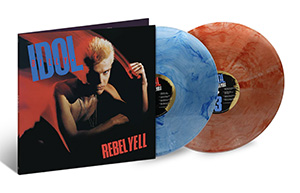
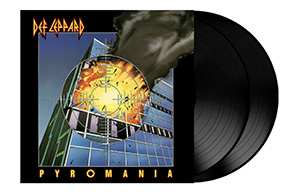
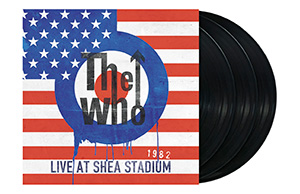



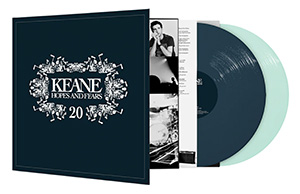
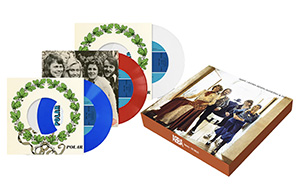
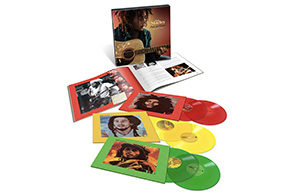
David
November 12, 2020 at 5:43 pm
The author is right about Who. It stands up with their other work. Still a great band. Sentimentally, I stick mostly with their work of the ‘60s and ‘70s since that’s my era
Sara
November 12, 2020 at 10:15 pm
Multiple Whogasms
Kirk
November 13, 2020 at 9:11 am
The Who were a brilliant(or still are, to a certain extent :p) band. What I was surprised to find is that lead singer in other bands still write songs while in The Who, Daltrey wrote nothing(hardly anything for his solo albums). He is solely there for his towering voice.
Madonna
November 14, 2020 at 1:21 pm
Best The Who songs…lol. Nobody’s gonna get mad if you drop “The”
Reb Guthrie
November 14, 2020 at 4:34 pm
Good list but missing Guitar & Pen from Who Are You. Glad that Sister Disco made it, and it’s hard to hear Young Man’s Bluses too often.
Michael
June 12, 2022 at 6:46 pm
Join Together
Guy Worley
May 21, 2023 at 7:37 pm
Behind Blue Eyes.
Andy Feldman
May 21, 2023 at 8:56 pm
Glad to see Love Reign O’er Me on the list. And just to correct a technicality, the wonderful “sequenced” intro to Bab O’Riley is actually a Lowery home organ with a built in arpeggiating preset called Marimba Repeat.